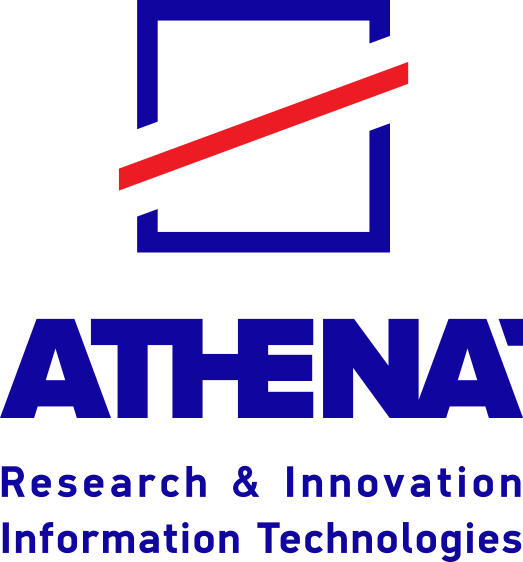Developing the next generation IoT: A perspective from basic research and industry projects
Prof. Dimitrios Georgakopoulos
Director, Key IoT Lab,
Digital Research Innovation Capability Platform & Industry 4.0 Program Leader,
Manufacturing Futures Research Platform
Swinburne University of Technology, Melbourne, Australia
Abstract – With a global market size of $662B in 2023, thousands of IoT platforms on the market, and tens of billions IoT devices in use today, existing IoT technology is well understood and IoT applications are omnipresent. In this talk we look beyond the current IoT technology and its applications. More specifically, we focus on the next generation IoT technologies that provide the following benefits: 1) Reduce the cost and effort of procuring, deploying, and maintaining IoT devices by enabling IoT applications to easily find and using IoT devices that are provided by any other party in the internet; 2) Increase industrial productivity and resilience by enabling the digitally representation and full exploitation of complex physical entities, which include complicated machines (e.g., industrial machines, vehicles, medical diagnostic systems), products (e.g., food, tires, steel rebar, airframe parts) and the materials used to make them, as well as the people that are involved in these; and 3) Improve the accuracy of the information distilled from the above and timeliness of producing such information.
To achieve IoT device sharing we propose a self-managed IoT marketplace that provides a pay-as-you go model for finding, integrating, and using any IoT device on the internet and discuss its applications in smart cities and smart farming. While the Industry 4.0 vision (which is supported by manufacturers and industrial technology providers, such as Siemens, Bosch, and IBM) sets directions for improving industrial productivity and resilience via digital representation and data-centric exploitation of complex industrial machines and products, related IoT and AI technology is in early stages. To digitally represent complex physical entities, we propose extending IoT with novel digital twins that knowledge graph-based description of complex physical entities, automatic generation of digital twins from their descriptions, and twin lifecycle management. We present sample digital twins for industrial machines, products, and people and discuss their role in increasing productivity and resilience in the manufacturing of food, steel, and composite products. Finally, we focus on the accuracy and timeliness challenges of IoT data analysis in the context of industrial, smart city, and energy generation applications. To improve prediction accuracy and meet IoT application time-bounds we propose dependency- and constraint-aware machine learning models and a flexible computing framework for time sensitive IoT data analysis.
Bio - Prof. Dimitrios Georgakopoulos is the Director of Swinburne’s Key IoT Lab and also leads the University’s Industry 4.0 Program. Before that he was Research Director of CSIRO’s ICT Centre and Professor at RMIT University. At the Commonwealth Science and Industrial Research Organization (CSIRO) he led the Information Engineering Laboratory, which was the largest Computer Science and IT research program in Australia. Before that, Dimitrios held senior research and management positions in industrial laboratories in the USA, including Telcordia Technologies (where he helped found two of Telcordia’s Research Centers in Austin, Texas, and Poznan, Poland); Microelectronics and Computer Corporation (MCC), Austin, Texas; GTE Laboratories (currently Verizon), Boston, Massachusetts; and Bell Communications Research (Bellcore), Piscataway, New Jersey. Dimitrios has authored 250 articles that have received approximately 21,200 citations. According to the October 2022 update of Elsevier’s science-wide author databases of standardized citation indicators, he is in the 2% of top-cited authors globally (top 1% if self-citations are excluded) in both career and 2022 rankings. He is a Microsoft Academic Top Author in the fields of the Internet of Things (2013-2022), Context Awareness (1990-2022), Middleware (1990-2022), and Workflow (1993-2002). His research has attracted $60.5M of external research grants/contracts. Just in the past 5 years at Swinburne, he was the lead investigator in 20 externally funded research projects that received $47.5M of external research funding, including $19.5M funding for Swinburne. Dimitrios has also led major cross-disciplinary research initiatives with Australian government and industry in digital manufacturing, social services, digital agriculture, sustainability, and defense that attracted another $100M of joint research funding. He has received numerus awards that include best paper awards from CORE A/A* conferences and research impact awards in Australia and the USA. In Swinburne, he has received a Vice Chancellor’s Innovation Award (2018), and a Faculty of Science, Engineering & Technology’s Research Award (2019).
________________________________________________________________________________
Meeting ID: 336 819 953 122
Passcode: 6rFkhS
________________________________________________________________________________













